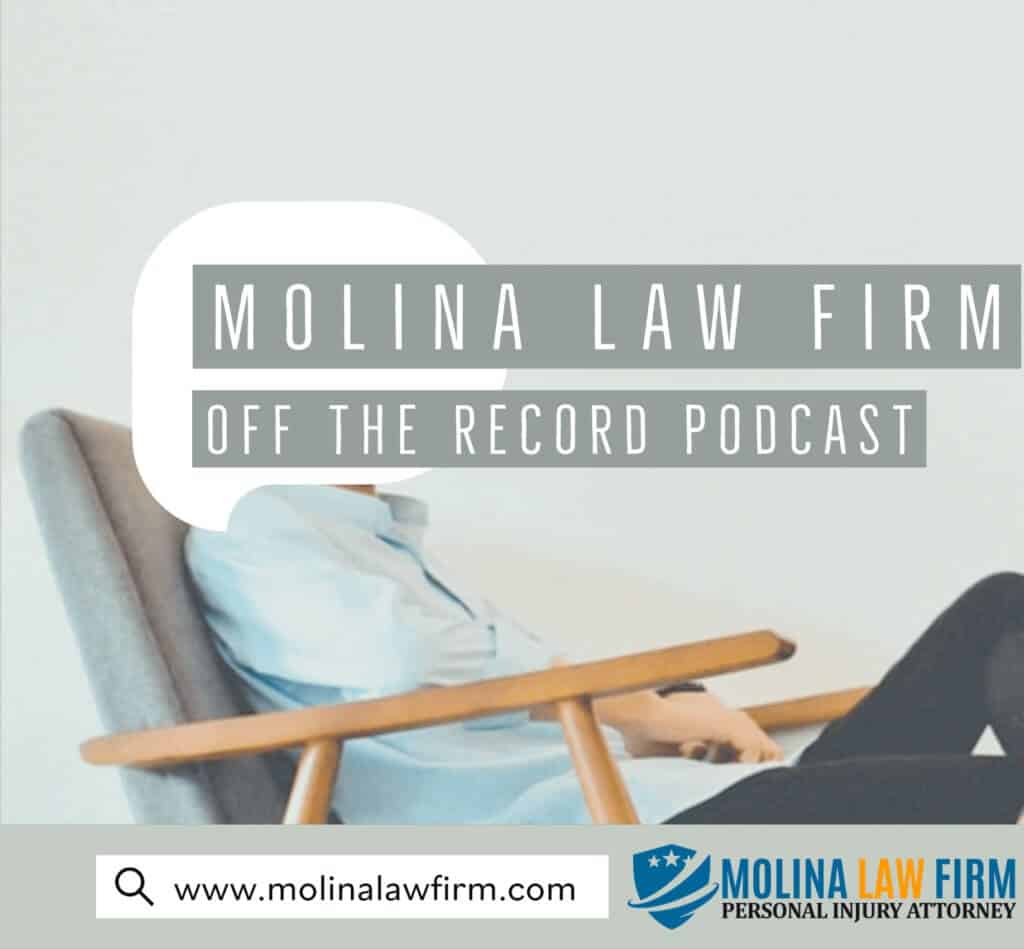
When it comes to car accidents, there is a common misconceptions about how much you can actually get from insurance claims. Many people believe even minor car accidents will result in significant compensation. Attorney Rick Molina is here to explain the car accident compensation settlement process so you can have reasonable expectations when filing a car accident insurance claim.
What factors into a accident settlement amount?
The settlement amount in a personal injury accident case can be influenced by a variety of factors, and the specific details can vary depending on the jurisdiction and the circumstances of the case. However, some common factors that typically influence the settlement amount include:
Liability: One of the key factors is determining who is at fault for the accident. If the other party is clearly liable, it can strengthen your case and potentially lead to a higher settlement.
Severity of injuries: The extent and severity of your injuries are significant factors in calculating a settlement. More severe injuries generally result in larger settlements to cover medical expenses, future medical care, and pain and suffering.
Medical expenses: The cost of your medical treatment, including hospital bills, surgeries, rehabilitation, and ongoing care, will be a major factor in calculating your settlement.
Lost wages and future earning capacity: If your injuries caused you to miss work or will affect your ability to earn a living in the future, these financial losses will be considered in the settlement amount.
Pain and suffering: This is a subjective component of a settlement that takes into account the physical and emotional pain and suffering you endured due to the accident and your injuries.
Property damage: If your property, such as your vehicle, was damaged in the accident, the cost of repairs or replacement will be factored into the settlement.
Insurance coverage: The insurance policy limits of the at-fault party can also play a role. If the responsible party has a higher insurance policy limit, it may increase the potential settlement amount.
Comparative negligence: In some cases, both parties may share some degree of fault. Depending on the laws in your jurisdiction, your settlement amount may be reduced if you are found partially responsible for the accident.
Evidence and documentation: Strong evidence, such as accident reports, medical records, witness statements, and expert opinions, can bolster your case and potentially lead to a higher settlement.
Negotiation skills: The negotiation skills and experience of your attorney can also impact the final settlement amount. Skilled negotiators may be able to secure a more favorable outcome for you.
Jury appeal: If your case goes to trial, the perceived strength of your case and your presentation in court can influence the jury’s decision, which in turn can impact the final settlement amount.
Statute of limitations: Filing your claim within the statute of limitations is crucial. Missing this deadline could result in your claim being dismissed, preventing you from receiving any settlement.
It’s important to note that each personal injury case is unique, and the factors listed above interact in complex ways. The ultimate settlement amount will depend on the specific circumstances of your case, the legal strategies employed, and the willingness of both parties to negotiate or litigate. Consulting with an experienced personal injury attorney is essential to understanding how these factors apply to your situation and pursuing the best possible settlement.
Negative factors in car insurance claims
There are things that you can do that may negatively impact your insurance claim or the amount of your settlement.
Poor documentation of the accident
There are many things that help a case and not having these things or a poor recording of them can significantly lower the amount of your settlement. This includes not having witness statements and photos from your accident scene. Additionally, if you did not seek medical attention or get your medical records, the severity of your injuries might not be documented well.
Going against medical advice
If after an accident, you do not follow medical advice, the insurance company may see this as negligence or prove that your injuries are not that significant. Follow your doctors orders after an assessment.
Accepting the insurance company first settlement offer
In some cases, insurance companies may offer you a settlement quickly. As much as this may seem to be a way to make some quick money, it may not cover all your costs and losses. Talk to an attorney before accepting a settlement offer. It may protect them from further compensation if other injuries or losses are determined.
Insurance Limits on Accident Claims
Insurance limits refer to the maximum amount an insurance policy will pay out in the event of a covered claim. These limits can apply to various types of insurance, including auto insurance, homeowners insurance, and liability insurance. When it comes to accident claims, such as those resulting from car accidents or other personal injury incidents, insurance limits are an important factor to consider.
Here are some key aspects of insurance limits on accident claims:
Auto Insurance Limits: In the context of auto accidents, the insurance limits typically consist of two main components: bodily injury liability limits and property damage liability limits. These limits are set by the policyholder when they purchase auto insurance and represent the maximum amount the insurance company will pay for bodily injuries and property damage caused by the insured driver in an accident.
Split Limits vs. Combined Single Limit: Auto insurance policies may have either split limits or a combined single limit (CSL). Split limits are expressed as three separate numbers (e.g., 25/50/25), where the first number represents the maximum amount for bodily injury liability per person, the second number is the maximum for bodily injury liability per accident, and the third number is the maximum for property damage liability per accident. A CSL, on the other hand, provides a single limit that covers both bodily injury and property damage (e.g., $100,000 CSL).
Underinsured and Uninsured Motorist Coverage: Some insurance policies also include underinsured motorist (UIM) and uninsured motorist (UM) coverage. UIM coverage can provide additional compensation if the at-fault driver’s insurance limits are insufficient to cover your damages. UM coverage can help when the at-fault driver has no insurance.
Umbrella Policies: Some individuals may purchase umbrella insurance policies, which provide additional coverage beyond the limits of their primary auto or homeowners insurance. These policies are designed to protect against large liability claims, including those resulting from accidents.
Coverage Adequacy: It’s crucial to ensure that your insurance limits are adequate to cover potential accident claims. If your insurance limits are too low, you may be personally responsible for paying any damages beyond the policy limits, which can be financially devastating.
Excess Liability Coverage: In some cases, individuals or businesses may purchase excess liability coverage, also known as umbrella insurance. This type of coverage provides additional protection once the primary insurance limits are exhausted.
Negotiation and Legal Action: If you are involved in an accident and the at-fault party’s insurance limits are insufficient to cover your damages, you may consider negotiating with the at-fault party or taking legal action to seek compensation beyond the insurance limits.
It’s important to review and understand your insurance policy limits and consider whether they adequately protect you in the event of an accident. Many people consult with insurance professionals or attorneys to assess their coverage needs and make informed decisions regarding insurance limits.
What are other avenues to get compensation in a car accident?
If you’ve been involved in a car accident and the at-fault party’s insurance coverage is insufficient to fully compensate you for your damages, or if you believe there are other parties responsible for the accident, there are several alternative avenues you can explore to seek compensation:
Your Own Insurance: Depending on your insurance coverage, you may be able to file a claim with your own insurance company. This could include:
Uninsured/Underinsured Motorist (UM/UIM) Coverage: If the at-fault driver has no insurance or insufficient coverage, your UM/UIM coverage can step in to provide compensation for your injuries and damages.
Personal Injury Protection (PIP) or Medical Payments Coverage: These coverages can help pay for your medical bills and sometimes other related expenses, regardless of fault.
Third-Party Claims: If there are other parties involved in the accident, such as a government entity responsible for road maintenance or a manufacturer responsible for a faulty vehicle component, you may be able to pursue a third-party claim against them.
Negotiation with At-Fault Party: You can attempt to negotiate directly with the at-fault party to reach an agreement for additional compensation, especially if they have personal assets that can cover the damages.
Mediation or Arbitration: You can opt for mediation or arbitration as alternative dispute resolution methods. These processes involve a neutral third party who can help both parties come to a settlement agreement without going to court.
Filing a Lawsuit: If all other options fail to provide adequate compensation, you may consider filing a personal injury lawsuit against the at-fault party. Keep in mind that pursuing a lawsuit can be time-consuming and expensive, so it’s usually considered a last resort.
Collecting from Multiple Parties: In some cases, multiple parties may share responsibility for the accident. You may be able to seek compensation from each responsible party to cover your damages.
Criminal Restitution: If the at-fault party was charged with a criminal offense related to the accident, such as driving under the influence, the court may order them to pay restitution to cover your losses as part of their criminal sentence.
Medicaid or Medicare: If you have Medicaid or Medicare, these programs may cover some of your medical expenses related to the accident. However, they may seek reimbursement from any settlement or judgment you receive.
Health Insurance Liens: If you have private health insurance, your insurer may have a right to recover some of the medical expenses they paid on your behalf from any settlement you receive. This is typically outlined in the insurance policy’s subrogation or reimbursement provisions.
Consulting an Attorney: It’s often advisable to consult with a personal injury attorney who specializes in car accidents. They can assess your case, explore all possible avenues for compensation, and guide you through the legal process to ensure you receive the maximum compensation available.
Keep in mind that the specific options available to you may vary depending on the circumstances of your accident, the laws in your jurisdiction, and the insurance coverage involved. Consulting with an attorney is typically the best way to navigate these complex matters and determine the most appropriate course of action for your situation.


